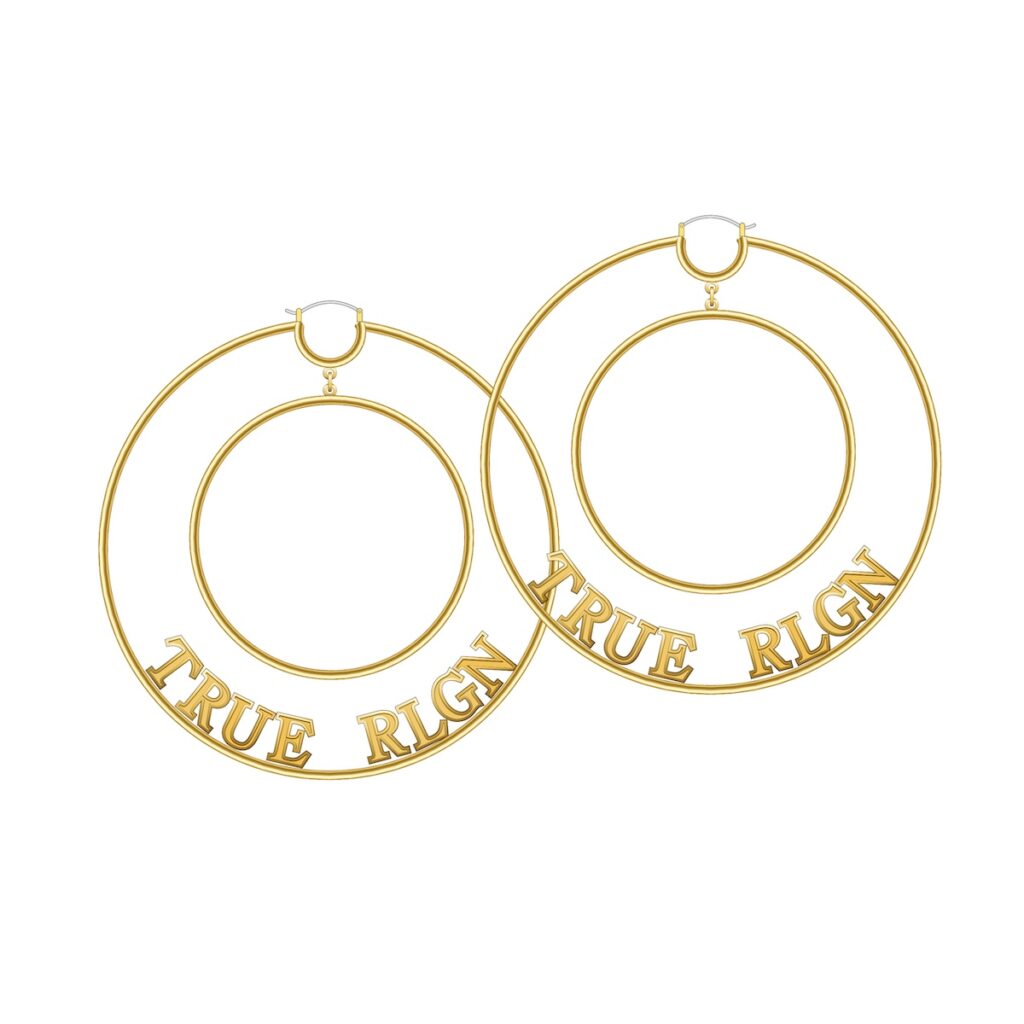True Religion is expanding beyond jeans and is strengthening its jewelry business.
The denim brand has partnered with two licensees, K&M Accessories and NES Group, to roll out necklaces, bracelets, charms, chains and earrings in time for the holidays. Items range in price from $28 to $62 and will be sold in True Religion stores, TrueReligion.com and through select wholesalers. Many of the items feature images of True Religion's symbols, the horseshoe and Buddha.
True Religion's new jewelry collections will be sold to women (through K&M Accessories) and men (through NES Group). They're part of True Religion's growing accessories business, which, including fragrances, hats and bags, accounts for 20% of the company's sales, CEO Michael Buckley told Modern Retail.
True Religion's move into jewelry is key to its plans to grow its women's division, which was the majority of the company's business in the early 2000s but now accounts for about 40% of in-store and online revenue. True Religion aims to increase that to 50% by 2026. To help achieve this goal, True Religion appointed Tina Blake as its first senior vice president of women's design and brand image in 2022.[women’s] “It's growing faster than we expected,” Buckley said.
At a time when many consumers are cutting back on discretionary purchases, True Religion sees jewelry as a solid entry point for the brand. The company wanted to bring jewelry to a “more affordable price point,” Buckley said. “Any touchpoint that brings new customers to the brand or provides more product to True Religion-loving consumers helps us grow,” he said. True Religion expects to do $5 million to $10 million in wholesale jewelry sales this year, from which the brand will earn royalties. (The jewelry will be sold through True Religion's current wholesale accounts, but Buckley said licensees will also leverage some of its store relationships.)
True Religion's move into the jewelry industry comes as the company is reportedly considering a change in ownership. True Religion, owned by Farmstead Capital Management, began the sale process in January, according to CNBC. The company is considering consumer-focused private equity groups and publicly traded apparel companies as potential buyers. True Religion is looking at sales of about $280 million in 2023, a person familiar with the matter told CNBC. Total revenue in 2021 was $255 million.
True Religion filed for bankruptcy in 2017 and again in 2020. As part of its recent comeback, the company is looking to capitalize on Y2K-era style. Part of this plan includes a digital initiative, and in 2022, it launched a mobile app after finding that 80% of e-commerce sales are via mobile. Expansion has also played a role. In September 2023, True Religion opened its first new store in four years. The brand has also opened stores in China, India, South Africa, Indonesia, and the Philippines. The brand is also sold in retailers such as Nordstrom, Macy's, and Bloomingdale's.
“We expect to sell more than 20 million items of apparel and accessories this year,” Buckley told Modern Retail, “up from 3 million 12 years ago.”
True Religion plans to use the new jewelry collection to gauge demand in different markets, especially in areas where True Religion does not have standalone stores. [the licensees] “Could we bring additional consumers to the brand from places we don't currently sell to?” Buckley told Modern Retail.
Jessica Ramirez, senior research analyst at Jane Harri & Associates, told Modern Retail that jewelry and other accessories tend to have higher profit margins than other parts of women's fashion. “That could work to True Religion's advantage,” she said.
Similarly, Gabriella Santaniello, founder of A-Line Partners, believes jewelry will “drive incremental sales” for True Religion. “We can train our associates to recommend products to customers in the fitting rooms,” Santaniello said.
True Religion has been working to further expand its assortment. Earlier this year, it launched its True Booty Perfector collection, which saw it branch out into denim shapewear. In August 2023, it expanded into homewear through a partnership with Envogue. Ramirez noted that True Religion is also beefing up its Western styles.
But Ramirez is skeptical that True Religion's overall offering “will actually compete with what we have available today.”
“There is still a lot of work to be done before True Religion can be called a true success,” she said.
True Religion joins other traditional denim brands building out non-denim assortments. Levi Strauss, for example, reported a 13% increase in non-denim sales in the first quarter compared to the same period last year.
For True Religion, expanding into other categories has been beneficial, Buckley said: “Each of these categories that we license gives us the ability to reach consumers through different channels, different retailers,” he explained.

